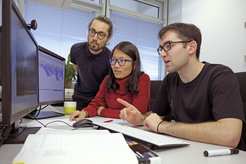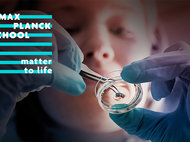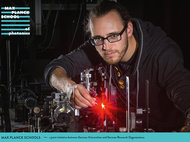
Programs for Graduate and Master Students
Do you study life sciences or medicine?
Are you interested in a bachelor's, master's, or doctoral thesis at our institute?
Then you are welcome to apply directly to our directors and research group leaders.
You can find information on the various doctoral programs at the Göttingen Campus, in which our institute participates, here. If you have general questions regarding your application, please contact our coordinator Antje Erdmann (see contacts on the left).
All our students doing research at the institute for a thesis or doctoral thesis must be enrolled at a university at the same time. With a few exceptions, academic titles in Germany are only awarded by the nationwide universities. The institute, therefore, cooperates closely with the University of Göttingen in the IMPRS doctoral programs listed below, where our directors and research group leaders also teach and give seminars.
International Max Planck Research Schools (IMPRS)

In the competition for the best young minds, the Max Planck Society and German universities have established a special program of education and training for outstanding students: The International Max Planck Research Schools, short IMPRS. The Max Planck Institutes for Multidisciplinary Sciences and for Dynamics and Self-Organization have teamed up with the University of Göttingen to establish the scientific programs Genome Science, Molecular Biology, Neurosciences, and Physics of Complex and Biological Systems. The structured education and training offers excellent research and learning conditions and is open to German and foreign students.
The institute and the IMPRS are also part of the Göttingen Graduate School for Neurosciences, Biophysics, and Molecular Biosciences (GGNB). GGNB offers structured graduate programs for master and doctoral students and supports young scientists with intensive courses and tutoring offers.
Max Planck Schools
In addition to the four International Max Planck Research Schools, our institute also participates in two Max Planck Schools started in 2019. The Max Planck Schools are a joint initiative of the Max Planck Society, German universities, as well as non-university research organizations. As national networks for graduate education, they complement the highly successful International Max Planck Research Schools.
There are also programs for young scientists within the framework of further cooperations between the institute and the University of Göttingen, the Max Planck Institutes for Dynamics and Self-Organization and for Experimental Medicine as well as the German Primate Center. These include:


